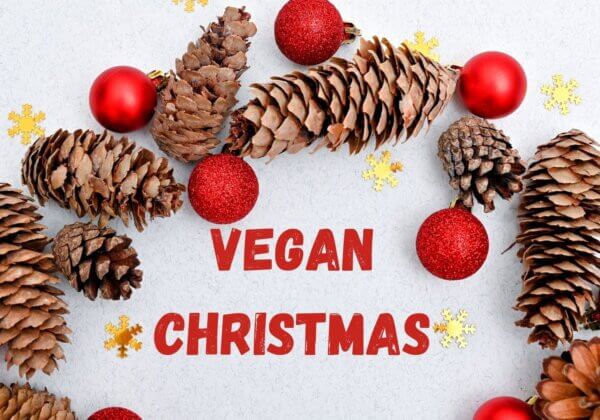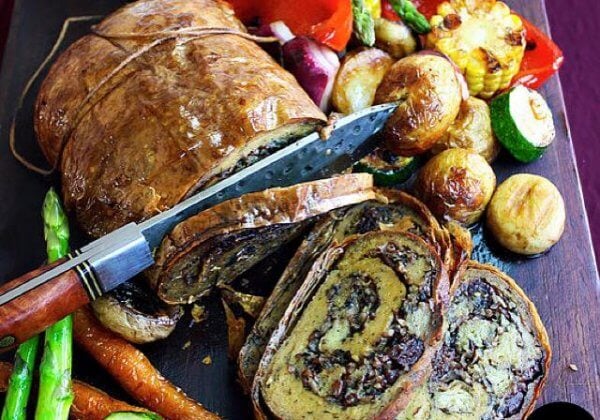What’s the Difference Between a Vegetarian and a Vegan?
As the world becomes more aware of the plight of animals, many people are choosing to become vegetarian or vegan. But what’s the difference between the two?
What Is a Vegetarian?
Vegetarian living is not a new concept. Many iconic historical figures were vegetarian, including Albert Einstein, Pythagoras and Leonardo da Vinci. Today, most of us know at least one vegetarian, and almost every restaurant has vegetarian options on its menu.
Usually, vegetarians oppose cruelty to animals, and as such, have decided not to eat them. Vegetarians don’t eat any animals, including pigs, chickens, cows, fish and all others. They may also avoid foods which contain animal-derived ingredients such as gelatin (found in many lollies) and rennet (sometimes found in cheese).
Can You Eat Fish and Be a Vegetarian?
Technically, no. There’s often a misconception that, in terms of their ability to feel pain and fear, fish are somehow in a different category than land animals. However, fish are not the “floating vegetables” they are often marketed to be – in fact, Dr Sylvia Earle, one of the world’s leading marine biologists, famously said:
I never eat anyone I know personally. I wouldn’t deliberately eat a grouper any more than I’d eat a cocker spaniel. They’re so good-natured, so curious. You know, fish are sensitive, they have personalities, they hurt when they’re wounded.
People who don’t consume land animals but do eat fish are generally referred to as “pescatarians”.

So What Is a Vegan?
Speaking from a dietary perspective, in addition to avoiding all animal flesh, a vegan doesn’t consume dairy milk, dairy cheese, eggs or any other food that’s derived from an animal.
However, being vegan is about much more than diet. The original definition, coined by The Vegan Society, states that veganism is:
[a] philosophy and way of living which seeks to exclude – as far as is possible and practicable – all forms of exploitation of, and cruelty to, animals for food, clothing or any other purpose; and by extension, promotes the development and use of animal-free alternatives for the benefit of humans, animals and the environment. In dietary terms it denotes the practice of dispensing with all products derived wholly or partly from animals.
Being vegan is not only a way of eating but also a way of life. It’s the fundamental belief that animals exist for their own reasons and have the right to be treated with respect. Similar to other social justice movements like feminism, the LGBT movement, the civil rights movement and others, veganism stands for equality and compassion for all.

PETA’s motto states, “Animals are not ours to eat, wear, experiment on, use for entertainment or abuse in any other way”. Vegans live in alignment with these principles and strive to make kind choices.
Luckily, it’s easier than ever to live a compassionate vegan life!
How to Eat Vegan
You might be wondering why you should choose not to eat dairy foods and eggs. Why not just be a vegetarian?
People are led to believe that animals used to produce dairy foods (milk, cheese, etc) and eggs are treated humanely, but that’s simply not true.
The dairy industry is just as cruel as the meat industry, and the two work in tandem. Many newborn male calves are taken from their mothers just days after birth and sent to be slaughtered. Common (and legal) killing methods include shooting them or hitting them on the head with a hammer. For those who are sent to the abattoir, current legislation allows up to 30 hours of transport time with no food or water.
https://www.youtube.com/watch?v=nAk5CN8hByY?
The egg industry is just as abhorrent. Many consumers are duped into believing that their eggs come from “happy hens”, but this couldn’t be further from the truth – even on so-called “free-range” farms.
Find out more about the horrors of the egg industry here.
The best way to get started with vegan eating is to order or download a copy of our free vegan starter kit. Packed with recipes, nutrition advice, product recommendations and more, it’s a great resource for anyone who is wishing to live a more compassionate life.
How to Wear Vegan
Choosing to leave animals out of your wardrobe is easier than ever. Instead of supporting the cruelty of the wool, leather, fur and silk industries, simply choose clothing made with synthetic materials!
In addition to sparing animals immense suffering, synthetic fabrics and plant-based fibres can also prevent environmental destruction, which is often caused by the production of materials such as wool and leather.
How to Help Animals Used for Experimentation
One of the first steps you can take is to make sure that all your cosmetics, toiletries and household products are cruelty-free. This means that they haven’t been tested on animals and are free of animal-derived ingredients.
Here are two great lists that will help you easily check many items:
How to Help Animals Used for ‘Entertainment’
This is one of the easiest areas in which we can all make more positive choices. It is pretty ridiculous to hold animals captive and subject them to a lifetime of suffering for the sake of “entertainment”.
It’s easy to choose not to visit a circus that uses animals, to show your children an educational video or visit an animal sanctuary rather than go to a zoo, or to boycott a cruel marine park like SeaWorld.
Instead of going to the races, where horses are routinely whipped and injured and then often face a harrowing end in an abattoir, why not get dressed up and throw a party instead? If betting is your thing, you can always play poker – that way no animals suffer.
Are There Any Other Benefits to Being Vegan?
Yes! Many people become vegan because, in addition to caring about the cruelty inflicted on billions of animals, they also care deeply about their own health and the environment.
Health Benefits of Being Vegan
Plant-based foods contain no cholesterol and are generally lower in saturated fat than animal-derived foods. In addition, eating meat, dairy foods and eggs has been associated with an increased risk of type 2 diabetes, whereas a plant-based diet has been successfully used to treat and even reverse this disease.
After the World Health Organisation classified processed meats as carcinogenic and stated that red meats such as beef, pork and lamb are also likely to cause cancer, many people have rightfully been looking to plant-based foods in order to ensure their long-term health.
How Being Vegan Can Help Save the Environment
A 2013 Loma Linda University study found that vegans have greenhouse-gas footprints that are 41.7 per cent smaller than meat-eaters’ footprints and 13.9 per cent smaller than vegetarians’.
The Leonardo DiCaprio–produced documentary Cowspiracy also shed light on the shocking environmental impact of animal agriculture.
In addition, the United Nations has said:
[Animal agriculture is] one of the top two or three most significant contributors to the most serious environmental problems, at every scale from local to global.







